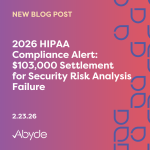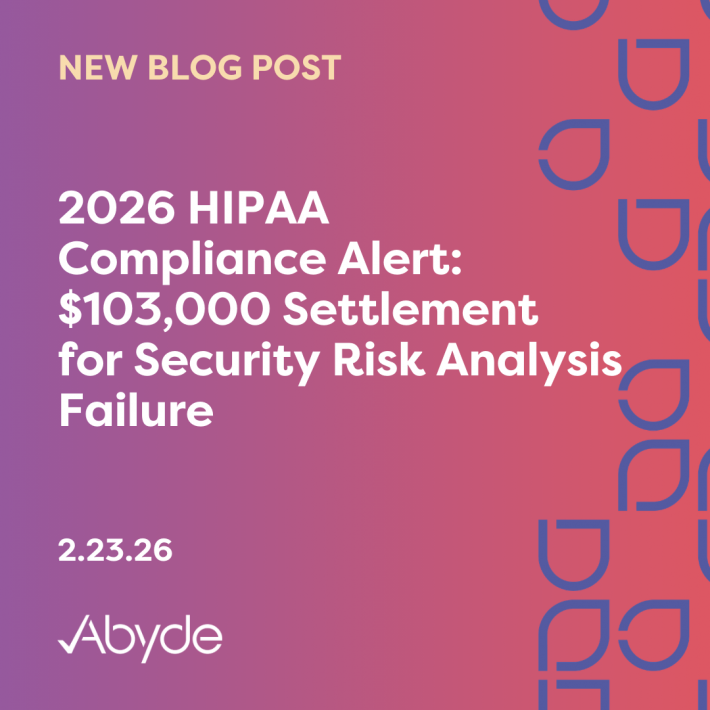August 6, 2020
Many practices have an organized system for welcoming a new employee to the team. Usually, new staff is an exciting addition, and you’ve likely got your welcome bag, name tags and business cards at the ready. But, when it comes to the end of an employee’s life cycle at your practice – not uncommon in 2020 due to COVID-19 – the process may not be as exciting or as organized. The uncertainty that surrounds having to terminate an employee can be messy, leading to paperwork and processes being executed in haste. In this hurry, mistakes are often made leaving sensitive patient data exposed to unauthorized recipients. Even if you have the best intentions and think it’ll never happen to you, data breaches continue to surface stemming from improperly terminated access.
Whenever you part ways with a former workforce member, full offboarding measures must be taken to ensure full protection of your practice as well as your patient’s data. The HIPAA Security Rule specifically details the required termination procedures in Section 142.308(a)(11) as the “formal, documented instructions for ending employment and closing off internal and external access.” This removal of access can be done by implementing the following offboarding actions:
- Revoking the employee’s access to your PM/EHR system immediately on or even prior to termination.
- Removing the employee from any user accounts such as e-mails or servers.
- Deactivating access codes, recollecting keys or keycards, or any other measures needed to change their access to your practice.
- Changing access or security codes if one code is used for all staff.
- Ensuring that there are no devices or paper files that contain PHI left in the employee’s possession.
- Disabling remote access to servers, software, or other systems.
Even for former employees, documentation is still essential when it comes to HIPAA compliance. Your practice should keep all HIPAA training certificates on file for up to 6 years even if terminated. If a breach occurred prior to an employee’s termination, or an audit occurs even after termination, you will need to produce a copy of the training certificate to prove that each staff member was properly trained at the time.
Other steps that should be taken on a regular basis to help improve the security within your practice as well as help ensure a smoother offboarding process include:
- Implementing a policy to change administrative passwords every few months, and immediately upon an employee’s termination.
- Ensuring all servers are up to date with software and security updates.
- Regularly finding and deleting any inactive user accounts that might still have access to your EHR system.
You may have a system in place for offboarding, but if you’re a busy practice there’s no harm in waiting a month or two to make sure access is revoked, right? Well…not so much. Every day that your former staff still have access to PHI is not only another day of increased risk, but also a major concern if ever audited or investigated by the OCR. In fact, failing to properly implement these procedures when offboarding employees has been the catalyst for multiple HIPAA breaches. In 2018, a Colorado Hospital found themselves in a HIPAA violation costing them $111,400 after terminating an employee without proper offboarding. The employee was not removed from the hospital’s online-based scheduling calendar which contained PHI – ultimately allowing continued access to the PHI of almost 600 patients. Along with the former employee’s access, it was found that the medical center’s web-based scheduling calendar vendor also received access to PHI without the proper Business Associate Agreement in place.
In response to this settlement OCR Director, Roger Severino emphasized that “This case underscores the need for covered entities to always be aware of who has access to their ePHI and who doesn’t.”
Equally as important as staff is properly offboarding any vendors your practice worked with. If any of your vendors have any access to your practice both physically as well as electronically they must be properly removed when your work contract is terminated. Things like disabling remote access to servers from any accounts with administrative privileges are often overlooked and can be a huge risk for data breaches and HIPAA violations. In fact, having a proper Business Associate Agreement in place with these vendors puts them on the hook for removing access and returning or destroying any PHI they may have had or created on behalf of your practice.
Having a comprehensive plan from the start to finish of an employee’s time at your practice will have a huge impact on ensuring the security of the sensitive patient information within your organization. While you most likely won’t have to deal with an employee gone rogue, being proactive and making certain that there are no loose ends when it’s time for a staff member to leave will help make the offboarding process seamless and stress-free.





